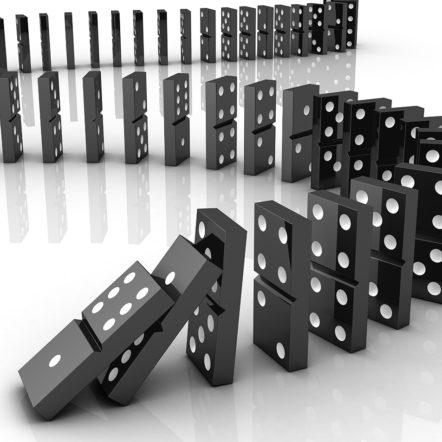I have often asked myself the question: What thinker has had the most influence on America? Each time I was hard-pressed to think of any recent American thinker because not enough has elapsed to provide a clear context. No, I am looking for someone who seems to have had a long and pronounced influence on our nation, even as we live in the 21st century. The usual candidates then came to mind — Abraham Lincoln, Thomas Jefferson, and for the imperially minded — Alexander Hamilton. These founding fathers provided us with the heavy thinking for the constitutional structure of our Republic for over 235 years. Yet it is hard to think of them as original thinkers.
To put my question in its proper perspective, I think it only fair to say that most early American thinkers have been derivatives of European or even Classical thinkers, such as Socrates, Plato and Aristotle or maybe the Romans for their legal and engineering ideas. In addition, each of the aforementioned great Americans strongly relied on the ideas of many European thinkers, such as John Locke, Immanuel Kant, David Hume, Thomas Hobbs, Montesquieu, Adam Smith, the Enlightenment’s Jean Jacques Rousseau, and Voltaire who impressed many democratic Americans.
Christians would probably like to invoke the name of Jesus Christ. Jews might suggest Moses and the Muslims Mohammed. Combined the three religions have well over two billions followers. But religious principles, with their focus on the here-after in a humanity of what Hume called twisted timber, do not seem to be the most important ideas circulating the planet. Times change and even the teachings in a large section of our country have lost favor. It is hard to call us a Christian people anymore when we annually dispose of millions of unwanted babies and regard both pregnancy and getting old a disease. Many of our politicians treat human life as a pawn on the chessboard of partisan politics.
Karl Marx and Frederick Engels might get the nod. They promoted many ideas in their 1848 pamphlet, The Communist Manifesto, that have given us our progressive tax structure, our educational system and the Federal Reserve system, which has had a near absolute control over our monetary policy since 1913. Even more importantly might be Sardinian communist, Antonio Gramsci. It was Gramsci, who adapted Marxism to the culture and he is probably, along with the Frankfurt School thinkers, most responsible for the pervasive culture war that has besieged the very foundational principles and structure of our Republic.
This discussion would not be replete without mentioning Nico Machiavelli, whose Prince quickly became The Dummy Book for tyrants. In his classic, this 16th century closet atheist laid the basis for how rulers could maintain power over their subjects. His ends justice the means doctrine has dominated world politics at least since the American Civil War. Machiavellianism has also become synonymous with treachery, intrigue, subterfuge, and tyranny. It has been even said that ‘Old Nick,’ the popular name of the Devil among Anglo-Saxon races, derives its origin from that of Nico Machiavelli.
President Lincoln might have started the ball rolling when he threw all caution to the wind in violating personal liberty laws for the good of the whole during the Civil War. At the very least he bears some responsibility for letting the nose of the camel into the American tent. Even the landmark decision, Brown vs. Board of Education, Topeka, Kansas that broke the back of the segregated educational system in the South was two parts noble and one part Machiavelli. The late conservative thinker, Joseph Sobran held Lincoln’s thinking as largely responsible for the Constitutional gaps that gave us the Roe v. Wade decision, more than a century after his death.
The Warren Court usurped the power of the states for the common good by judicial fiat in several of their decisions. In doing so, like Lincoln, they totally disregarded the 10th Amendment. While their ends were noble, their means were a violation of the Constitution. The Progressives of the early 20th century, quickly accelerated the deconstruction of the U. S. Constitution. Herbert Croly, the publisher of the New Republic, instituted a brilliant Hegelian synthesis of fusing Hamiltonian means of big government with the Jeffersonian ends of social welfare and the common good.
This marriage of means and ends gave us the Gnostic policies of Woodrow Wilson, FDR, Lyndon Johnson and Barack Obama. It also gave us nearly 50 years of Roe v. Wade, which nearly signaled the end of America’s rule of law. Over the years our leaders have slowly but surely ignored the Constitution in taxations, declarations of war, torts, budgets and spending, religious freedom and free association — all in the name of a presumably noble end. That is, until the Trump Court restored a modicum of respectability with its overturn of Roe in 2022. Many of these ends were not noble but the result of autocratic politics in a hurry. With the whole camel, now in the tent, conservative Americans have been left with the job of trying to clean up the cultural and economic mess.
With the dam of constitutional restraint breeched, it gave rise to minorities and special interests, such as Malcolm X, who adapted Machiavelli, by stressing by all means necessary to affect what his radical Muslim group wanted. It fell to community organizer, Sol Alinsky to take Machiavelli one-step further. While the latter catered to the rich and elitist leaders of a society, Alinsky tried to wrest the power of the elite for the poor and the downtrodden — the true victims of capitalist oppression. In doing so, Alinsky has emerged as America’s quintessential radical. He personified the enlightened and revolutionary thinking of the past into a synchronized whole in his book Rules for Radicals in 1971.
This book still serves as a handbook for power-hungry politicians on the make, like the current occupant of the White House. What is more instructive is Alinsky’s profound recognition of the world’s first radical — namely Lucifer, the enlightened one, who was probably the true inspiration for liberalism and its Gnostic heritage. As Alinsky epigraph stated, Lucifer was the world’s first radical…who rebelled against the establishment and did so effectively that he won his own kingdom. John Milton put it best in his Paradise Lost when he quotes Satan as saying It is better to reign in Hell than serve in Heaven. Personally, I do not think winning an eternal place in Hell is such an accomplishment. I have no idea if liberals ever ponder these thoughts but perhaps most do not believe in Judgement Day, Heaven or Hell. With the Devil solidly behind the Left, all human dignity, goodness, truth and beauty are seriously at risk.
It has always been my belief that the Holy Spirit of Christianity has used other people as instruments of God’s Divine Providence and messengers of grace. Perhaps Lucifer has used some of the most revered thinkers in world history, like Machiavelli, Rousseau and Marx, and Alinsky as his instruments in attempting to thwart the Holy Spirit in their battle for the souls of men and women. One cannot read a newspaper without seeing the devil’s handiwork in wars, murders and constant social unrest. Since so much of our intellectual and cultural structure has emanated from his enlightened promptings, maybe Lucifer’s thinking has had the most influence on American thought. This is just an idea but as the Vitae Foundation used to say Think about it.








